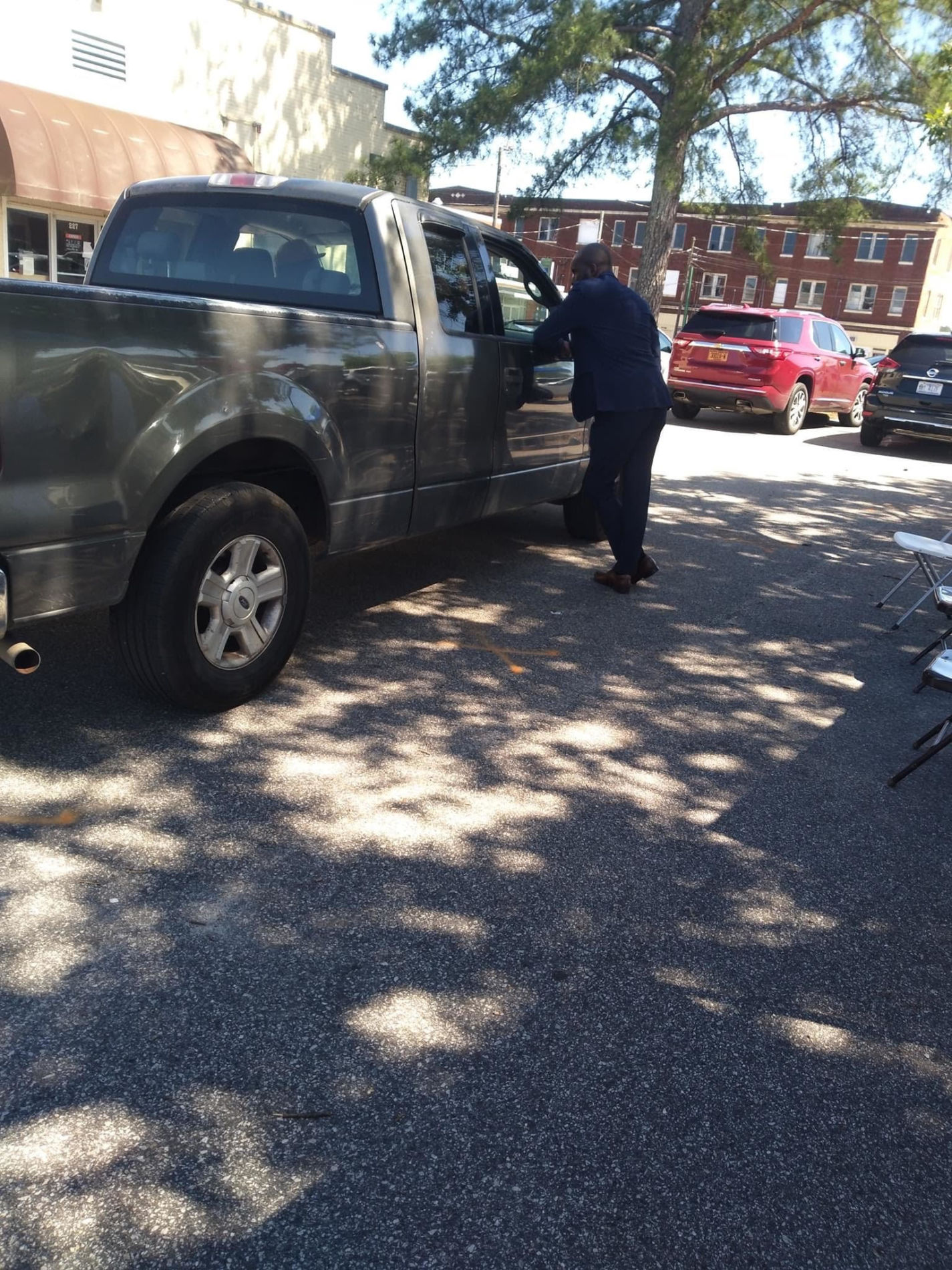In paperwork filed Wednesday with the N.C. Court of Appeals, the State Board of Elections is urging the appellate court to reject a request from a Hoke County candidate to intervene in the county commissioner’s race. Lent Carr, who finished fourth in the May 17 Democratic primary, alleges that one of his competitors bribed voters to get on the November ballot.
The Appeals Court is considering whether to grant a “writ of superseadas.” Such an action could block election officials from moving forward with preparing ballots in Hoke County.
The board of elections said that Carr filed his protest after primary election results were certified and further action from the Appeals Court would “upend” administration of November 2022 elections in Hoke County.
Additionally, the board said that “the claims underlying his election protest and appeal are meritless.”

Carr’s protest is based on two affidavits and photographs that claim one of Carr’s primary opponents, Allen Thomas, allegedly gave $100 to a voter in a car parked in the handicapped curbside voting spot at a polling place during early voting in May 2022. Carr also alleges that Thomas may have paid other people for their votes as well. Carr claims that in February Thomas offered Carr $20,000 not to run in the primary.
In the court filing, Thomas, who is currently the sitting chairman of the Hoke County commissioners, claims that the money he gave that day to Sam McLean, who’d voted the week before, was only for lawn services. Connell Nicholson was also in the vehicle and was there to vote curbside that day. A witness affidavit alleges that McLean shared the money from Thomas with Nicholson.
Hoke County elections director Chassidy Chavis was on site at the time and filed an official incident report that was included as evidence in the suit. In addition to buying votes, state election law bans candidates from going within 50 feet of voting spaces, including those for disabled voters in curbside parking spaces.
“This Court should issue the writ of supersedeas because the November County Commissioners’ election is imminent, Mr. Thomas may take office in that election, and Mr. Thomas may benefit from bribery while in office,” the suit filed by attorney Daniel Gibson reads.
Carr disagrees with the NCSBE’s argument that he did not follow a timely protest procedure. He says he first filed a formal protest with the Hoke County elections board, presenting the photograph and affidavits from two witnesses, one of whom is his wife. The Hoke County board denied his protest saying it did “not establish probable cause to believe that a violation of election law or regulatory of misconduct has occurred.”
Carr then appealed the county decision to the State Board of Elections, which also denied the protest. Carr took his protest a step further, to the Superior Court, but did not get a stay within the required 10-day canvassing period, so the results of the primary election were certified. The court was waiting for the NCSBE response, which did not come until Wednesday.
Carr also says that his protest was denied due process because the Hoke County Board of Elections gave it a short public hearing with no presentation of testimony or evidence at the meeting.
In the incident report from Chavis, the primary’s fifth-place finisher, Carlton Ray Barber, reportedly also saw the exchange between Allen and a curbside voter and shouted “Allen Thomas is outside buying votes. … He heard a voter tell him he was hungry and Mr. Thomas in turn tells him that he will be [sic] him a chicken box.”
Chavis reported that Barber posted videos of Thomas on Facebook.
Another witness, identified in court documents as Myra McKoy, says Thomas was seen talking to a voter in a gray pickup truck in the handicapped curbside voter parking space, going to an ATM, and then returning to the truck with an undisclosed amount of money that Thomas later said was $100.
McKoy signed an affidavit alleging that she overheard the conversation with the men in the truck and Thomas.
The document states that she heard one of the men in the truck say:
“I’ll vote for you Allen, but I’m in a bad fix, I need money.’ And then Allen said, ‘What’s up brother?’ The gentleman in the driver’s seat said ‘Allen, I need a few dollars; if you can give me a little money to hold me over, I’ll give you my vote right now.’ Allen Thomas glanced around, and I turned my head to throw him off that I was listening and watching the exchange. Once Allen Thomas upon information and belief that he was not being watched nor heard, he proceeded to state to the driver, ‘man, I’ve already spent over $3,000 dollars on my campaign, but I need your vote. Hold on, I’m going to walk over to my bank and withdraw a few dollars for you but you’ve got to prove to me that you voted for me.’ ”
McKoy said she saw McLean hand part of the money to the voter, Nicholson, and Thomas give the men a thumb’s up.
The other witness affidavit submitted to the court was signed by Carr’s wife, Deltarina Carr.
Thomas ran in the Democratic primary for N.C. lieutenant governor in 2020, losing to Yvonne Holley for that nomination. He also ran in the Democratic primary for the N.C. Senate in 2012.